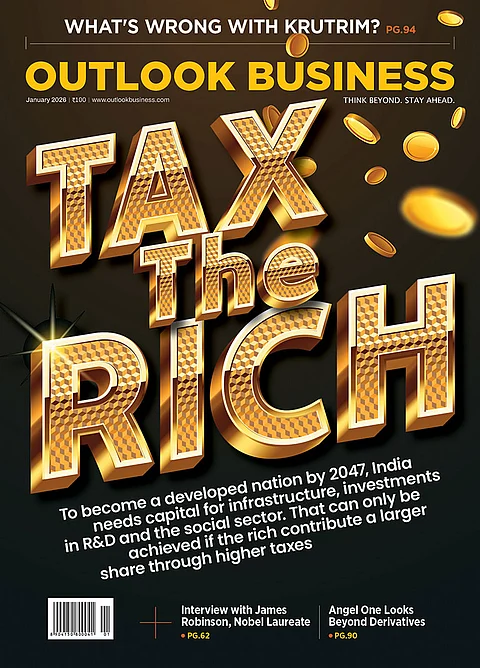Breathing clean air was something Akanksha Priyadarshini took for granted in a childhood spent in military cantonments. It was when she visited other parts of the country that she noticed the difference: fresh, breathable air versus toxic smog.
These experiences, coupled with her mother being diagnosed with asthma, left a lasting impact. Years later, trained as an engineer at the National Institute of Technology Rourkela, Priyadarshini joined the dots: real-time air-quality data that measured particulate matter, greenhouse gases and ambient parameters was scarce in India, making it challenging for people to take measures to protect themselves.
Her answer was Aurassure, a Bhubaneswar-based start-up that she co-founded in 2022 with Vamsi Krishna, Raviteja Cherukuri and Omprakash Patra to transform air-quality monitoring through advanced internet of things (IoT) and AI-driven solutions.
Tailored to Indian Needs
Aurassure started with support from the Start-up India scheme. In 2023, it secured a seed round from venture-capital firm Unicorn India Ventures, raising Rs 4 crore.
The company’s growth since then has been steady, with a revenue of Rs 1 crore in the financial year 2023 and a projected Rs 10 crore for the current financial year. The start-up turned profitable last year, recording a profit of Rs 65 lakh.
“We saw a gap in reliable air-quality data and that drove us to develop an affordable and scalable solution,” says the 31-year-old, who is also chief executive.
Aurassure’s USP is its technology. The start-up’s IoT-based sensor network is designed to provide high-accuracy hyperlocal data. While sensor-based air quality monitoring is still an emerging space, Priyadarshini and her team have worked extensively to ensure data accuracy.
One of the company’s biggest endorsements is from tech giant Google, which uses its data for environmental insights. Google also supported the initial deployment of sensors. “We didn’t have the financing to set up such a large-scale network ourselves, so their support was crucial,” says Priyadarshini.
Aurassure’s devices are designed to work efficiently even in challenging climates, ensuring reliability in high-pollution urban centres as well as remote locations, says Priyadarshini. This adaptability makes their offerings particularly valuable for government agencies and disaster management bodies, she adds.

The Home Advantage
Bhubaneswar proved to be an ideal launch pad for the company, contrary to the trend of setting up a tech-driven venture in Bengaluru or Delhi. Most of Aurassure’s core team is from the city. “We had good initial support and resource availability, so setting up here was not a challenge,” says Priyadarshini.
“But as we scale, we realise that we need to expand our R&D and data science teams across multiple locations,” she says. The 40-people company is now setting up teams in different regions while keeping its headquarters in Bhubaneswar.
While Tier-I and Tier-II cities offer more access to talent and investors, Priyadarshini sees an advantage in operating from a smaller city. “The approval processes for various compliances are smoother and hiring local talent is easier. However, we do face challenges in attracting senior talent who prefer metro cities,” she says. The lack of a local ecosystem can also impact the rate of growth, she adds.
Despite these challenges, the start-up has a presence in over 165 cities and partnerships with state governments, corporate clients and ‘smart city’ initiatives.
The X Factor
Aurassure sets itself apart in a number of ways. First, it owns and controls its sensor network, unlike many competitors who only manufacture and sell devices.
This allows it to have more control and provide end-to-end services in the form of insights for enterprises, real estate developers and city planners.
The start-up also integrates satellite data and AI-driven reanalysis models to offer predictive insights, while their proprietary AI-physics model delivers high-resolution air quality data. “Aurassure’s ability to integrate hyperlocal data sources through their own devices and combine it with satellite data makes their proposition unique,” says Anil Joshi, managing partner, Unicorn India Ventures.
Bhubaneswar proved to be an ideal launch pad for the company, contrary to the trend of setting up a tech-driven venture in Bengaluru or Delhi
Manu Gupta, co-founder of Sustainable Environment and Ecological Development Society, an initiative focused on mitigating climate-change impact, highlights the potential for climate-tech start-ups: “Encouraging public-private partnerships and integrating climate-resilience strategies into urban and rural planning will create more opportunities for these start-ups to thrive.”
Aurassure has ambitious expansion plans within the country and internationally. Brazil is the company’s first international market. The start-up is also ramping up its R&D, focusing on improving the predictive capabilities of its AI models and enhancing the energy efficiency of its sensors.
As Aurassure continues to scale, its founder remains focused on innovation and impact. “We started with a mission to improve air-quality monitoring in India. Now, we are making that mission global,” Priyadarshini says.











